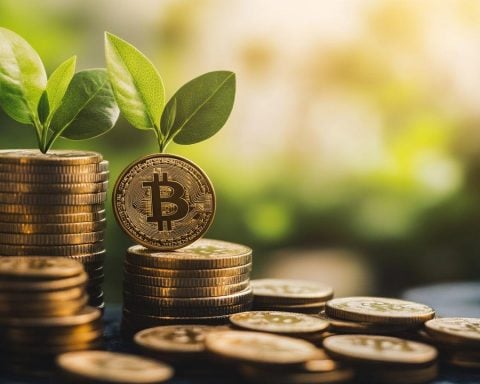As the financial landscape rapidly evolves, the emergence of tokenized payments signals a significant shift towards a more integrated financial ecosystem. The latest collaboration between MetaMask, Mastercard, and Baanx marks a pivotal moment in this transition. While traditional financial institutions have been slower to adopt blockchain technology, the pilot launch of the MetaMask Card in the EU and UK signifies a step towards wider adoption by mainstream users in 2024.
Mastercard’s history of partnerships within the crypto space highlights a growing trend of bridging the gap between traditional finance (TradFi) and decentralized finance (DeFi). Through services like Ekata and NuDetect, Mastercard aims to enhance transparency and security in crypto transactions, bringing a new level of trust to the crypto payment landscape.
The demand for crypto payments is no longer a niche trend but a fundamental shift in how financial transactions are conducted. With industry giants like Visa and PayPal also entering the tokenized payment sector, the convergence of fiat and crypto payment rails is becoming increasingly apparent. This shift underscores the evolution of crypto from a disruptive force to a mainstream on-ramp for financial transactions.
Trust and transparency remain paramount in this evolving landscape. While blockchain technology was initially heralded for its trustless nature, the reality is that users seek a balance between security and usability. The partnership between Mastercard and MetaMask exemplifies this balance, providing users with the convenience of fiat transactions while leveraging Mastercard’s expertise to enhance transaction security.
In conclusion, the integration of TradFi and DeFi heralds a new era of financial collaboration, offering investors diverse opportunities in the rapidly evolving crypto ecosystem. With regulatory frameworks adapting to these changes, the future of tokenized payments promises exciting developments for users of all backgrounds.
The Future of Tokenized Payments: Exploring Key Questions and Challenges
As tokenized payments continue to redefine the financial landscape, several important questions arise that shed light on the opportunities and challenges associated with this new era of financial integration:
What are the key questions that stakeholders need to consider?
1. Scalability: How can tokenized payment systems be scaled to handle increasing transaction volumes and diverse user bases while maintaining efficiency and security?
2. Interoperability: How can different tokenized payment platforms ensure seamless interoperability to facilitate cross-border transactions and enhance user experience?
3. Regulatory Compliance: What regulatory frameworks need to be put in place to address the unique challenges posed by tokenized payments, including anti-money laundering (AML) and know your customer (KYC) requirements?
4. User Education: How can stakeholders educate users about the benefits and risks of using tokenized payments to ensure widespread adoption and awareness?
5. Privacy and Security: What measures can be implemented to protect user data and prevent unauthorized access to tokenized payment systems?
What are the advantages and disadvantages of tokenized payments?
Advantages:
– Efficiency: Tokenized payments can offer faster transaction processing times compared to traditional payment systems.
– Transparency: The blockchain technology underlying tokenized payments provides a transparent record of transactions, enhancing trust and accountability.
– Global Access: Tokenized payments have the potential to facilitate cross-border transactions with lower fees and faster settlement times.
– Financial Inclusion: Tokenized payments can provide unbanked populations with access to financial services, fostering greater financial inclusion.
Disadvantages:
– Volatility: Cryptocurrency prices can be highly volatile, posing risks for both consumers and merchants.
– Security Concerns: Despite advances in blockchain security, tokenized payment systems are not immune to hacking or security breaches.
– Regulatory Uncertainty: The evolving regulatory landscape for cryptocurrencies and tokenized payments can create uncertainty for stakeholders.
– User Adoption: Encouraging widespread adoption of tokenized payments may require significant efforts to educate users and address any skepticism or resistance.
Overall, the future of tokenized payments promises to revolutionize financial transactions, but stakeholders must navigate key challenges such as scalability, regulatory compliance, and security to realize the full potential of this innovative payment technology.
For further insights on the evolving landscape of tokenized payments, visit Mastercard.
















